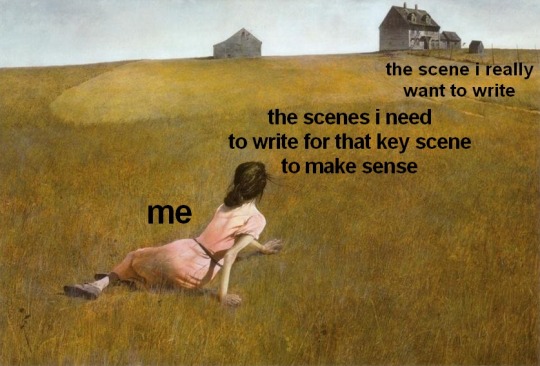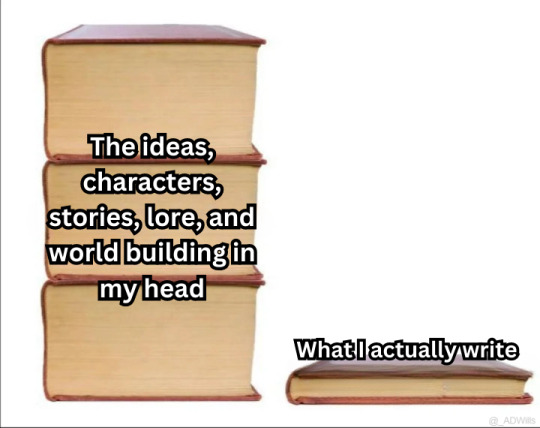Text
sometimes the moral of the story really is just "you cannot go back and what happened to you is going to be with you for the rest of your life. but it's still going to be okay" huh
32K notes
·
View notes
Text
Palestine Masterlist
Introduction to Palestine:
Decolonize Palestine:
Palestine 101
Rainbow washing
Frequently asked questions
Myths
IMEU (Institute for Middle East Understanding):
Quick Facts - The Palestinian Nakba
The Nakba and Palestinian Refugees
The Gaza Strip
The Palestinian catastrophe (Al-Nakba)
Al-Nakba (documentary)
The Hundred Years’ War on Palestine: A History of Settler Colonialism and Resistance, 1917-2017 (book)
The Ethnic Cleansing of Palestine (book)
Nakba Day: What happened in Palestine in 1948? (Article)
The Nakba did not start or end in 1948 (Article)
Donations and charities:
Al-Shabaka
Electronic Intifada
Adalah Justice Project
IMEU Fundraiser
Medical Aid for Palestinians
Palestine Children’s Relief Fund
Addameer
Muslim Aid
Palestine Red Crescent
Gaza Mutual Aid Patreon
Books:
A New Critical Approach to the History of Palestine
The Idea of Israel: A History of Power and Knowledge
Hidden Histories: Palestine and the Eastern Mediterranean
The Balfour Declaration: Empire, the Mandate and Resistance in Palestine
Queer Palestine and the Empire of Critique
From Haven to Conquest: Readings in Zionism and the Palestine Problem until 1948
Captive Revolution - Palestinian Women’s Anti-Colonial Struggle within the Israeli Prison System
Palestine: A Four Thousand Year History
Except for Palestine: The Limits of Progressive Politics
Before Their Diaspora: A Photographic History of The Palestinians 1876-1948
The Battle for Justice in Palestine Paperback
Uncivil Rites: Palestine and the Limits of Academic Freedom
Palestine Rising: How I survived the 1948 Deir Yasin Massacre
The Transformation of Palestine: Essays on the Origin and Development of the Arab-Israeli Conflict
A Land Without a People: Israel, Transfer, and the Palestinians 1949-1996
The Iron Cage: The Story of the Palestinian Struggle for Statehood
A History of Modern Palestine: One Land, Two Peoples
Where Now for Palestine?: The Demise of the Two-State Solution
Terrorist Assemblages - Homonationalism in Queer Times
Militarization and Violence against Women in Conflict Zones in the Middle East
The one-state solution: A breakthrough for peace in the Israeli-Palestinian deadlock
The Persistence of the Palestinian Question: Essays on Zionism and the Palestinians
Fateful Triangle: The United States, Israel and the Palestinians
The False Prophets of Peace: Liberal Zionism and the Struggle for Palestine
Ten myths about Israel
Blaming the Victims: Spurious Scholarship and the Palestinian Question
Israel and its Palestinian Citizens - Ethnic Privileges in the Jewish State
Palestinians in Israel: Segregation, Discrimination and Democracy
Greater than the Sum of Our Parts: Feminism, Inter/Nationalism, and Palestine
Palestine Hijacked
Palestinian Culture:
Mountain against the Sea: Essays on Palestinian Society and Culture
Palestinian Costume
Traditional Palestinian Costume: Origins and Evolution
Tatreez & Tea: Embroidery and Storytelling in the Palestinian Diaspora
Embroidering Identities: A Century of Palestinian Clothing (Oriental Institute Museum Publications)
The Palestinian Table (Authentic Palestinian Recipes)
Falastin: A Cookbook
Palestine on a Plate: Memories from My Mother’s Kitchen
Palestinian Social Customs and Traditions
Palestinian Culture before the Nakba
Tatreez & Tea (Website)
The Traditional Clothing of Palestine
The Palestinian thobe: A creative expression of national identity
Embroidering Identities:A Century of Palestinian Clothing
Palestine Traditional Costumes
Palestine Family
Palestinian Costume
Encyclopedia of World Dress and Fashion, v5: Volume 5: Central and Southwest Asia
Tent Work in Palestine: A Record of Discovery and Adventure
Documentaries, Films, and Video Essays:
Jenin, Jenin
Born in Gaza
GAZA
Wedding in Galilee
Omar
5 Broken Cameras
OBAIDA
Indigeneity, Indigenous Liberation, and Settler Colonialism (not entirely about Palestine, but an important watch for indigenous struggles worldwide - including Palestine)
Edward Said - Reflections on Exile and Other Essays
Palestine Remix:
AL NAKBA
Gaza Lives On
Gaza we are coming
Lost cities of Palestine
Stories from the Intifada
Last Shepherds of the Valley
Voices from Gaza
Muhammad Smiry
Najla Shawa
Nour Naim
Wael Al dahdouh
Motaz Azaiza
Ghassan Abu Sitta
Refaat Alareer (murdered by Israel - 12/7/2023. Inna lillahi wa inna ilayhi raji'un)
Plestia Alaqad
Bisan Owda
Ebrahem Ateef
Mohammed Zaanoun
Doaa Mohammad
Hind Khoudary
Palestinian Voices, Organizations, and News
Boycott Divest and Sanction (BDS)
Defense for Children in Palestine
Palestine Legal
Palestine Action
Palestine Action US
United Nations relief and works for Palestinian refugees in the Middle East (UNRWA)
National Students for Justice in Palestine (SJP)
Times of Gaza
Middle East Eye
Middle East Monitor
Mohammed El-Kurd
Muna El-Kurd
Electronic Intifada
Dr. Yara Hawari
Mariam Barghouti
Omar Ghraieb
Steven Salaita
Noura Erakat
The Palestinian Museum N.G.
Palestine Museum US
Artists for Palestine UK
Eye on Palestine
50K notes
·
View notes
Text
Hi, Tumblr. It’s Tumblr. We’re working on some things that we want to share with you.
AI companies are acquiring content across the internet for a variety of purposes in all sorts of ways. There are currently very few regulations giving individuals control over how their content is used by AI platforms. Proposed regulations around the world, like the European Union’s AI Act, would give individuals more control over whether and how their content is utilized by this emerging technology. We support this right regardless of geographic location, so we’re releasing a toggle to opt out of sharing content from your public blogs with third parties, including AI platforms that use this content for model training. We’re also working with partners to ensure you have as much control as possible regarding what content is used.
Here are the important details:
We already discourage AI crawlers from gathering content from Tumblr and will continue to do so, save for those with which we partner.
We want to represent all of you on Tumblr and ensure that protections are in place for how your content is used. We are committed to making sure our partners respect those decisions.
To opt out of sharing your public blogs’ content with third parties, visit each of your public blogs’ blog settings via the web interface and toggle on the “Prevent third-party sharing” option.
For instructions on how to opt out using the latest version of the app, please visit this Help Center doc.
Please note: If you’ve already chosen to discourage search crawling of your blog in your settings, we’ve automatically enabled the “Prevent third-party sharing” option.
If you have concerns, please read through the Help Center doc linked above and contact us via Support if you still have questions.
94K notes
·
View notes
Text
oc asks: not-so-nice edition
alone: How does your OC deal with loneliness? Have they ever been completely alone before? How do they act when there's no one around to see them?
betrayal: Has your OC ever been betrayed by someone they thought they could trust? Has your OC ever betrayed someone who trusted them?
bound: Has your OC ever been imprisoned or captured? What happened? How did they get out? Did the experience leave any scars?
break: What would cause your OC to break down completely? What do they look like when that happens? Has anyone ever seen them at their lowest?
desire: What's one thing your OC wants more than anything in the world? Are they open with that desire? Why or why not? What would they do to fulfill it?
failure: What's your OC's greatest failure? Have they been able to move past it? Does anyone else know about it?
fear: What is your OC's greatest fear? What do they do when confronted with it? Are they open with their fear, or do they hide it away?
future: What's the worst possible future for your OC? Are they taking steps to avoid that outcome? Are they even aware it's a possibility?
ghost: Who or what haunts your OC? What happened? How do they live with their ghosts?
guilt: What is your OC guilty about? How do they handle their guilt? Do they try to avoid guilt, or do they accept it?
hate: What does your OC hate? Why? How do they act towards the object of their hatred?
heartbreak: Have they ever had a relationship that ended badly? Experienced some other kind of heartbreak? What happened?
hide: What does your OC hide? Why do they hide it?
hunt: Who or what is your OC hunted by? A person, a feeling, a past mistake? Is your OC able to let their guard down, or are they constantly alert?
mask: Does your OC wear a mask, literally or figuratively? What goes on beneath it? Is there anyone in their life who gets to see who they are under the mask?
midnight: What keeps your OC up at night? Do they have nightmares? Fears? Anxieties? What do they do in the small hours of the morning when they should be sleeping?
mistake: What's the worst mistake your OC ever made? What led to them making it? Have they been able to fix it? How have they moved on?
monster: Is your OC monstrous in any way? Is there something that makes them monstrous? Are they aware of their own monstrosity? Do they accept it or reject it?
nightmare: What does your OC have nightmares about? How do they deal with their nightmares? Do they tell people, or keep it to themself?
pain: What's the worst pain your OC has ever felt? Do they have a high pain tolerance?
secret: What's one secret your OC never wants anyone to know about them?
skin: How comfortable is your OC in their skin? Do they grapple with anything that lives inside them—a beast, a curse, a failure, a monster? How do they face the smallest, weakest, most horrible version of themself? Are they able to acknowledge it at all?
torture: Has your OC ever been tortured? Would your OC ever torture someone else?
wound: How does your OC handle being wounded? Are their wounds mostly physical? Mental? Emotional? What's the worst wound your OC has ever experienced?
12K notes
·
View notes
Text
HOW TO GIVE PERSONALITY TO A CHARACTER
Giving personality to a character is an essential part of character development in storytelling, whether you're writing a novel, screenplay, or creating a character for a role-playing game. Here are some steps and considerations to help you give personality to your character:
Understand Their Backstory:
Start by creating a detailed backstory for your character. Where were they born? What were their childhood experiences like? What significant events have shaped their life? Understanding their past can help you determine their motivations, fears, and desires.
2. Define Their Goals and Motivations:
Characters often become more interesting when they have clear goals and motivations. What does your character want? It could be something tangible like a job or a romantic relationship, or it could be an abstract desire like happiness or freedom.
3. Determine Their Strengths and Weaknesses:
No one is perfect, and characters should reflect this. Identify your character's strengths and weaknesses. This can include physical abilities, intellectual skills, and personality traits. Flaws can make characters relatable and three-dimensional.
4. Consider Their Personality Traits:
Think about your character's personality traits. Are they introverted or extroverted? Shy or outgoing? Kind or selfish? Create a list of traits that describe their character. You can use personality frameworks like the Myers-Briggs Type Indicator or the Big Five Personality Traits as a starting point.
5. Give Them Quirks and Habits:
Quirks and habits can make a character memorable. Do they have a specific way of speaking, a unique fashion style, or an unusual hobby? These details can help bring your character to life.
6. Explore Their Relationships:
Characters don't exist in isolation. Consider how your character interacts with others. What are their relationships like with family, friends, and enemies? These relationships can reveal a lot about their personality.
7. Show, Don't Tell:
Instead of explicitly telling the audience about your character's personality, show it through their actions, dialogue, and decisions. Let the reader or viewer infer their traits based on their behavior.
8. Create Internal Conflict:
Characters with internal conflicts are often more engaging. What inner struggles does your character face? These can be related to their goals, values, or past experiences.
9. Use Character Arcs:
Consider how your character will change or grow throughout the story. Character development is often about how a character evolves in response to the events and challenges they face.
10. Seek Inspiration:
Draw inspiration from real people, other fictional characters, or even historical figures. Study how people with similar traits and backgrounds behave to inform your character's actions and reactions.
11. Write Dialogue and Inner Monologues:
Writing dialogue and inner monologues from your character's perspective can help you get inside their head and understand their thought processes and emotions.
12. Consider the Setting:
The setting of your story can influence your character's personality. For example, a character who grows up in a war-torn environment may have a different personality than one raised in a peaceful, affluent society.
13. Revise and Refine:
Don't be afraid to revise and refine your character as you write and develop your story. Characters can evolve and change as the narrative unfolds.
Remember that well-developed characters are dynamic and multi-faceted. They should feel like real people with strengths, weaknesses, and complexities. As you write and develop your character, put yourself in their shoes and think about how they would react to various situations. This will help you create a compelling and believable personality for your character.
11K notes
·
View notes
Text
STOP BEING SELF CONSCIOUS ABOUT YOUR CREATIONS STOP SECOND GUESSING WHAT YOU REALLY WANNA DO STOP DEBATING IT'S WORTH. LET YOUR ART SERVE YOU INSTEAD OF THE OTHER WAY AROUND
24K notes
·
View notes
Text
Watched Saltburn for the first time, felt the need to post this for some reason
#saltburn#barry keoghan#jacob elordi#Allison Oliver#archie madekwe#saltburn spoilers#Saltburn spoilers i guess?#bodies bodies bodies#rachel sennott#myha’la herrold#will plug in this film any time i can#i literally bursted out laughing during this movie#ijbol#literally#take that as you will#great gowns beautiful gowns#rosamund pike#emerald fennell#richard e. grant
15 notes
·
View notes
Text
ao3 wrapped
-> you read 2,690,420 words, none of which are in the bible
-> your preferred genre is an abomination
-> you found one writer and read everything they've ever written...
-> ...only to find out they're into some weird shit.
-> and now you are too. congratulations!
-> the data we've collected has shocked us to our very core and we wish we hadn't done it. we won't see you next year. please seek professional mental support
21K notes
·
View notes
Text
I completed my 50,000 words for my first ever Nano (four days ago but whatever) but I’m still continuing the story
1 note
·
View note
Text
I thought it was a bird, but it was just a paper bag
#monday#fiona apple#doves#paper bags#when the pawn#when the pawn hits the conflicts he thinks like a king
1 note
·
View note
Text
Pro Tips from a NaNo Coach: How to Write a Novel in 30 Days

NaNoWriMo can seem like a daunting task sometimes, for NaNo newbies and veterans alike. Fortunately, our NaNo Coaches are here to help guide you through November! Today, author Adiba Jaigirdar is here to share her advice on how to set yourself up for noveling success:
Welcome to the very first week of NaNoWriMo! I’ve done NaNoWriMo for (almost) every year since 2008. I’ve won some, I’ve lost some, but I’ve learned a lot along the way. In fact, I apply a lot of the tactics I learned in NaNoWriMo to all my writing. When I wrote my second book, Hani and Ishu’s Guide to Fake Dating, I ended up with a first draft of 74,000 words written in 30 days. That wasn’t something I would have thought possible in 2008 when I was slogging through my very first 50,000-word novel. That’s why I’m here today to share with you a few tips and tricks I’ve picked up through my writing journey, in the hopes that they serve you and your novel this November:
1. Accountability
One of the most difficult parts of writing a novel is that it requires so much self-discipline. It’s not like a job you show up to where your boss is holding you accountable for how many words you’ve written. Only you are ultimately responsible for how much you get done—which is why it’s easy to get demotivated and give up. So, you need to figure out ways in which you can be accountable for your novel this month.
You’ll be glad to hear that you’ve already taken the first step in doing this: you’ve pledged to do NaNoWriMo. You’re here, ready to write. But you can go a step further: ask your friends and family to hold you accountable by checking in on your progress during the month. If you have friends who are doing NaNoWriMo that’s even better; you can hold each other accountable. If you’re on social media, you can share updates every day and be accountable to your followers. There are a lot of ways to do it; so figure out what kind of accountability works best for you!
2. Planning
Planning a novel is definitely not for everyone. This is coming from someone who has pantsed many books! Planning can look different for different people. If you are a true-blue plotter, you might have your entire novel planned from beginning to end, with comprehensive chapter outlines. But if you’re not someone who plots out your entire novel before you’ve written a single word, planning is still important.
This planning can look like a rough outline of your book or finishing your writing day and jotting down a few quick ideas of what to write when you come back to writing the next day, or it can be leaving yourself voice memos as ideas spark when you’re nowhere near your novel. Going into every new day of writing without any idea of what the blank page will hold is very, very daunting, which is why planning ahead can be just the motivation that you need to fulfill your word count goal for the day.
3. Figure out what works for you
I have published four books so far and I’ve written many more. The process of writing each of these books has been very different. I drafted one in three months, one in 30 days, one was completely plotted with a rigorous outline, while one was plotted with a flexible outline, and two were completely pantsed. What I’ve learned about myself is that to make a book work, sometimes I have to try something different.
The only thing NaNoWriMo requires of you is to write those 50,000 words. How you go about it depends on you. You don’t have to write every single day if that doesn’t work for you. You can write at the same time every day, or a different time every day depending on what sparks your creativity. You don’t have to participate in writing sprints if writing with a countdown doesn’t help you focus. The point is that now’s your time to figure out what works for you and what doesn’t. You might be surprised by what methods you swear will never work for you but ends up helping you over that finish line.
4. Have fun!
This is easier said than done, but try to enjoy writing your novel. Especially when it feels difficult. When I wrote 74,000 words in 30 days, it felt like a breeze because I was having a lot of fun with my book. Try to remember what makes you excited about your novel and go back to that when it’s tough. If writing is what you love, find the joy of it and nurture it throughout this month. The more you enjoy it, the more likely you are to keep writing.
Adiba Jaigirdar is the award-winning, critically-acclaimed and bestselling author of The Henna Wars, Hani and Ishu’s Guide to Fake Dating, A Million to One, and The Dos and Donuts of Love. A Bangladeshi/Irish writer and former teacher, she has an MA in Postcolonial Studies and a BA in English and History. She is the winner of the YA book prize 2022, the KPMG Children’s Books Ireland Awards 2021, and was a finalist for the 2022 Lambda Literary awards. When not writing, she is probably ranting about the ills of colonialism, playing video games, or expanding her overflowing lipstick collection.
241 notes
·
View notes
Text
Beyond the Word Count: A Book Editor's Guide to Writing a First Draft
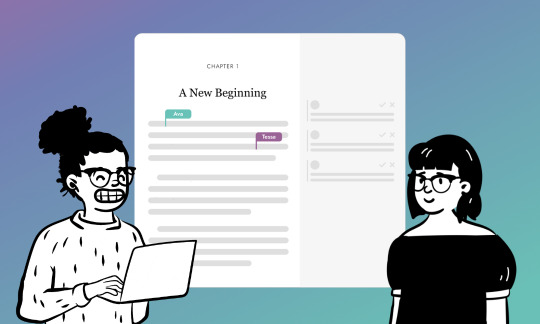
Every year, we’re lucky to have great sponsors for our nonprofit events. First Draft Pro, a 2023 NaNoWriMo sponsor, is a beautifully designed writing app for fiction writers. Today, they've partnered with Kelly Norwood-Young, former book editor for Pan Macmillan and Penguin Random House, to bring you some pro tips on writing your first draft:
In my career as a book editor, I’ve reviewed hundreds of manuscripts. I've seen the joy of authors creating compelling tales, but also how disheartening it can be to rewrite a disjointed story. I’m here to give you some strategies to address common pitfalls so that you not only reach your NaNoWriMo goal, but also lay the groundwork for a manuscript that truly deserves to be called a gripping novel.
1. Have a plan.
Even if you’re more of a ‘pantser’ than a ‘planner’, it's really helpful to have an outline. I have two favourite approaches for this: the structure-first approach, and what I call the ‘Phoebe Waller-Bridge approach’.
The structure-first approach
There are a lot of narrative frameworks for story structure, but the most foundational in Western fiction is the three-act structure. Here’s a handy guide that breaks each of the classical three acts into a day-by-day guide to NaNoWriMo:
8-day guide to Act 1
14-day guide to Act 2
8-day guide to Act 3
The Phoebe Waller-Bridge approach
I love this quote from Phoebe Waller-Bridge: ‘I’ve never thought structure first. I’ve always thought material first, jokes first, character first ... But knowing the end really helps. Then you just go as far away from the end emotionally as you possibly can.’
Sketch out your major story arcs, your character’s desires and conflicts, and the world they inhabit. The more you know your story's world and inhabitants, the less you'll stray into scenes that lack purpose or create plot and character inconsistencies.
2. Keep the story moving.
Each word needs to propel your story forward. Superfluous details or tangents that don’t serve the narrative stall the momentum you’re trying to generate for your reader.
There’s a trick you can use to move your story forward, called the question of reversibility. Ask yourself: How difficult would it be for my character to reverse their decision? The harder it would be for them to turn back, the more you’ve moved the plot forward.
3. Plant clues carefully.
Plant important elements early and make sure every element, however subtle, serves a purpose (i.e. Chekhov’s Gun).
Be sure to set up necessary components for your climax so that you can steer clear of Deus ex Machina (having that strong outline will help you here), and avoid red herrings unless they serve a clear, meaningful purpose (e.g. you’re writing a mystery and your readers expect some false leads). Misleading your readers without a payoff can erode their trust.
4. Write for the reader, not yourself.
‘There is only one thing you write for yourself, and that is a shopping list,’ insists Umberto Eco in On Literature. Even if writing, for you, is a therapeutic outlet, a form of self-expression, or a way to leave a legacy, you’re still writing to say something to someone else. Your story simply won’t be as strong if you forget your reader’s perspective.
5. Keep daily editorial notes for your future self.
While editing should wait until at least December, end each day with a brief reflection, noting any off-course deviations, potential inconsistencies, areas to research further, or moments of inspiration to revisit when you start editing.
These daily notes will be invaluable during the editing process, helping you to remember insights that are no longer fresh when you come back to the manuscript later.
6. Embrace the first-draft mentality.
There’s a lot you can do to ensure that your first draft is the best it can be before the end of November—but just as important is to understand that all first drafts have flaws.
As a book editor, I've witnessed manuscripts transform, sometimes unrecognizably, from their first drafts. Embrace the uncertainty and creative detours—because it's from this beautiful chaos that your story will find its true voice.
Kelly Norwood-Young is a seasoned book editor and proofreader with comprehensive experience across various facets of manuscript editing. Her background includes roles at Pan Macmillan and Penguin Books, extending into a successful freelance career working with award-winning authors. Kelly's work, known for its precision and sensitivity to the author's voice, has been integral to the success of both new and established writers globally.
Try out First Draft Pro: All NaNoWriMo participants can use the discount code NANOWRIMO2023 for 20% off a premium subscription to First Draft Pro! Offer expires January 31, 2024.
355 notes
·
View notes
Text
Character Creation: The Minus 1 Rule

Whether you’re working on a first draft of a novel, or rewriting your story for the tenth time, characters are what really hold a story together. If you’re having trouble getting to know your characters, writer B. Berry is here today with a method to try:
You may encounter this issue when you sit down to write a novel: Somehow, you’ve stumbled upon an amazing plot, the worldbuilding is coming together cohesively, and you cannot wait for That Certain Twist.
But, with dawning horror, you realize that oh no, novels need more than a plot and a setting. They need characters to go in it. You figure your main character will be… a person. That sounds about right.
But what else?
Characters are most commonly what readers will fall in love with. Whether your project is plot-driven or character-driven, they are a vital part, and not something to fudge lightly.
Keep reading
507 notes
·
View notes
Text
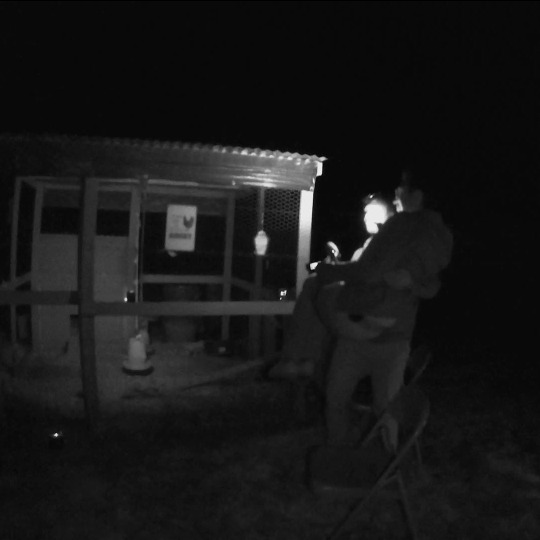
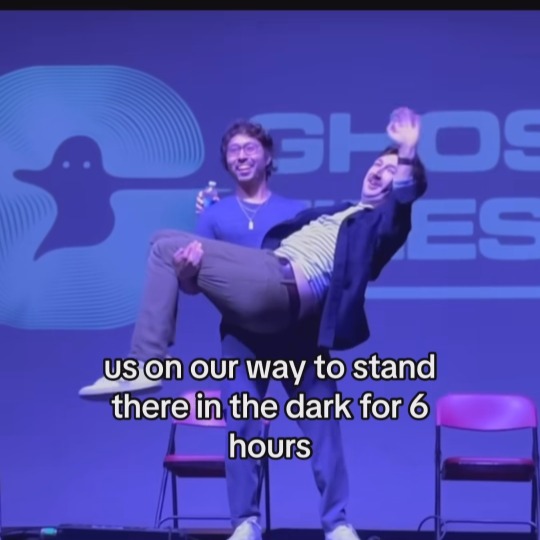
so glad the ghoul boys realised ryan can carry shane, this is a great new era of their content
13K notes
·
View notes
Text
just popping in to say that i've donated to the Palestinian Children's Relief Fund and highly encourage others to do so too, if they are able.
❤️
708 notes
·
View notes
